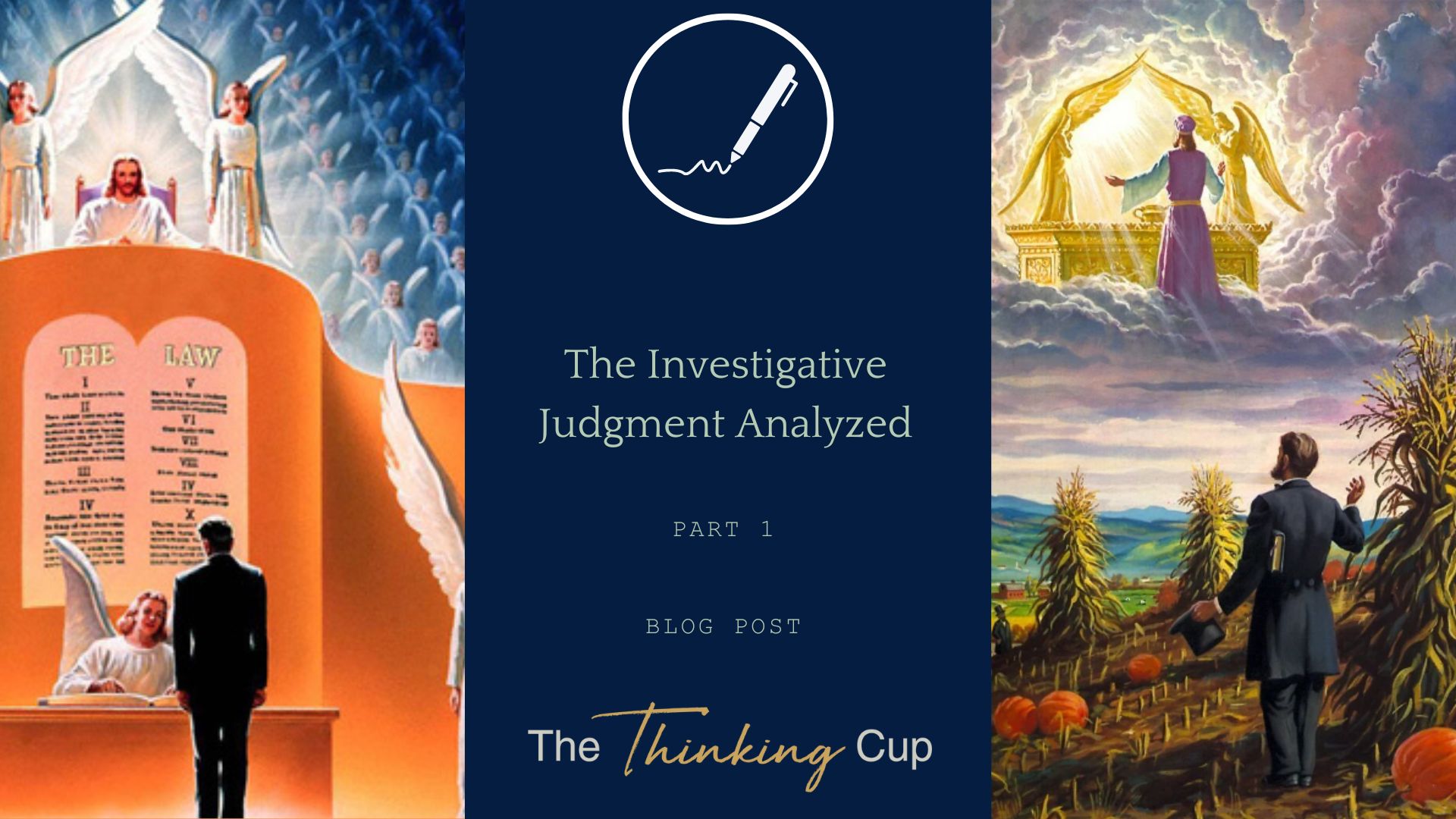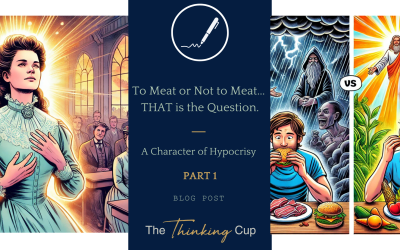I realize that if you have been following my journey, you have probably read some pretty direct and bold assertions about the most important author in Adventism: Ellen G. White.
CLAIM:
Ellen G. White is a liar, bears a false witness, and is a false prophetess.
I understand that for an Adventist, this probably would trigger you or at least cause some visceral reaction to defend.
Dr. Clinton Baldwin stated correctly in his book The Person of Jesus: God’s Obligatory Sabbath: (340)
“One dare not disagree with Ellen White on any substantive issue such as the obligatory nature of the Sabbath, Sunday worship enforced as the mark of the beast, the SDA Church as the remnant church (and I would insert the Investigative Judgment), and remain in good graces with our church.”
Adventist pastors and evangelists can preach the church’s biblical understanding without referencing Ellen G. White. Still, they consistently defer to her interpretations in their private studies and doctrinal discussions with fellow Adventists.
If you are an Adventist or have any experience with Adventism, you can vouch for the veracity of this statement. So, to make a claim as I have while still being a Seventh-day Adventist would surely bring the wrath of the Adventist Church upon me.
As I mentioned in my last post, we are no longer Seventh-day Adventists, but our upbringing and heritage are deep in the Adventist system. So why would I make these types of charges against Ellen G. White? Why does it matter?
I believe Ellen White’s interpretive lens has dangerously changed and tainted the version of the Gospel, Salvation, Who Jesus is, Redemption, and our obligation to live as Christians. She damages the understanding of God’s plan for humanity. But how do we know this to be true?
We will test what she says against the Word of God to see if it holds up. Then, you will decide if the evidence is for or against Ellen!
The time is worse than lost in spinning out theories that are not sustained in the Bible to vindicate such errors.” [1]
Ellen White and the early Adventists developed a distinctive belief known as the “Investigative Judgment.” This teaching divides the Atonement into two phases. The first phase began with Jesus’ death on the cross. The second phase, the Investigative Judgment, is believed to have started in 1844 when Christ is said to have entered the Most Holy Place in Heaven. During this judgment, Christ reviews the lives of all believers, beginning with Adam and Eve and continuing through history, assessing the lives of the dead and, eventually, the living who will be around during the end times. In this process, God determines each case, either erasing the believer’s sins from the heavenly records or removing their name from the Book of Life. Once this judgment concludes, the probationary period will end, and Jesus will return to reward those whose names remain in the Book of Life. But does this teaching align with logic and Scripture?
Ellen White vs. The Bible
Ellen White: Every name is examined, starting with Adam…
“As the books of record are opened in the judgment, the lives of all who have believed on Jesus come in review before God. Beginning with those who first lived upon the earth, our Advocate presents the cases of each successive generation, and closes with the living. Every name is mentioned, every case closely investigated. Names are accepted, names rejected.” [2]
The Bible: God already knows who are His own.
“I am the good shepherd. I know my own and my own know me, just as the Father knows me and I know the Father; and I lay down my life for the sheep.” (Jn 10:14–15)
“But God’s firm foundation stands, bearing this seal: “The Lord knows those who are his,” and, “Let everyone who names the name of the Lord depart from iniquity.” “ (2 Ti 2:19)
Scripture indicates that God already knows who belongs to Him. What would there be for Him to investigate that He doesn’t already know? Even before the world was created, God knew who would be saved and who would be lost. It shouldn’t take Him over 179 years to determine who is saved. In 2022, the Frontier supercomputer was capable of performing over a quintillion calculations per second. Surely, God is far more knowledgeable and could complete such an investigation in less than a nanosecond if He needed to.
Ellen White: Every individual MUST pass the Investigative Judgment.
“Every individual has a soul to save or to lose. Each has a case pending at the bar of God. Each must meet the great Judge face to face. How important, then, that every mind contemplate often the solemn scene when the Judgment shall sit and the books be opened, when with Daniel every individual must stand in his lot at the end of the days.” [3]
The Bible: Believers in Christ do not face an investigative judgment.
“Truly, truly, I say to you, whoever hears my word and believes him who sent me has eternal life. He does not come into judgment, but has passed from death to life.” (Jn 5:24)
“There is therefore now no condemnation for those who are in Christ Jesus. For the law of the Spirit of life has set you free in Christ Jesus from the law of sin and death.” (Ro 8:1–2)
According to Scripture, the Atonement was completed on the cross. It is finished. While believers will indeed stand before Christ’s judgment seat to receive rewards based on their works (2 Cor. 5:10), there is no need for an investigative process to determine their worthiness for salvation. God already knows all there is to know. The Bible does not describe an investigative judgment to determine a believer’s salvation. Instead, believers are made worthy by Christ’s sacrifice.
Ellen White: The sins of believers are NOT BLOTTED OUT until AFTER the investigative judgment.
“But, according to the unerring word of God, every man will be judged and rewarded according as his works have been, and we are admonished to so speak and to so do as “they that shall be judged by the law of liberty.” When sin has been repented of, confessed, and forsaken, then pardon is written against the sinner’s name; but his sins are not blotted out until after the investigative judgment.” [4]
The Bible: Sins are blotted out when believers repent.
“I have blotted out your transgressions like a cloud and your sins like mist; return to me, for I have redeemed you.” (Is 44:22)
“Repent therefore, and turn back, that your sins may be blotted out, that times of refreshing may come from the presence of the Lord, and that he may send the Christ appointed for you, Jesus, whom heaven must receive until the time for restoring all the things about which God spoke by the mouth of his holy prophets long ago.” (Ac 3:19–21)
“If we say we have not sinned, we make him a liar, and his word is not in us.” (1 Jn 1:10)
Ellen White: By 1850, Jesus’ work of investigating believers’ cases was “almost finished.”
“I then saw Brother Edson that he must gird on the whole armor and stand in readiness to go, for a journey was before him, and that souls needed help and that Jesus’ work was almost finished in the sanctuary, and that we must work while the day lasts, and when Satan comes up with his power to oppress us we must have faith in God and beat him back, and if we could not get the victory we should fast and pray and we should surely get the victory and triumph over Satan. (“A Vision the Lord Gave Me at Bro. Harris”, August 24, 1850) [5]
The Bible: The Atonement was finished on the Cross.
“When Jesus had received the sour wine, he said, “It is finished,” and he bowed his head and gave up his spirit.” (Jn 19:30)
“But when Christ had offered for all time a single sacrifice for sins, he sat down at the right hand of God, waiting from that time until his enemies should be made a footstool for his feet. For by a single offering he has perfected for all time those who are being sanctified.” (Heb 10:12–14)
The Bible teaches that Christ’s atonement on the cross has already perfected His followers. Christians are not made perfect during an Investigative Judgment. If someone is “in Christ,” their perfection was achieved 2,000 years ago through Christ’s perfect sacrifice at Calvary.
“There is therefore now no condemnation to them which are in Christ Jesus, who walk not after the flesh, but after the Spirit” (Rom. 8:1).
“Much more then, being now justified by his blood, we shall be saved from wrath through him” (Rom. 5:9).
Ellen White: Jesus began a second phase of the Atonement in 1844.
“It is this coming, and not His second advent to the earth, that was foretold in prophecy to take place at the termination of the 2300 days in 1844. Attended by heavenly angels, our great High Priest enters the holy of holies and there appears in the presence of God to engage in the last acts of His ministration in behalf of man—to perform the work of investigative judgment and to make an atonement for all who are shown to be entitled to its benefits.”[6]
The Bible: Christians had received Atonement by 50 A.D.!
Paul, writing to the Romans around 50 A.D., stated that Christians of the first century had already received (past tense) the atonement:
“More than that, we also rejoice in God through our Lord Jesus Christ, through whom we have now received reconciliation.” (Ro 5:11)
Paul is referring to the same “atonement” that Ellen White spoke of—the merits of Christ applied to individual believers. Paul said that believers had already received this atonement in the first century.
In the next post, we will cover Part 2 of this analysis, Providing some concrete examples of people that Ellen G. White claimed either are in heaven or will be in heaven even though they never went through the Investigative Judgment that she claimed EVERYONE would be required to pass through.
In Christian Love,

[1] Ellen G. White Estate, Manuscript Release No. 760: The Integrity of the Sanctuary Truth (Ellen G. White Estate, 1981), 4.
[2] Ellen Gould White, The Great Controversy Between Christ and Satan, vol. 5, Conflict of the Ages Series (Pacific Press Publishing Association, 1911), 483.
[3] The Review and Herald, n.d., 897.
[4] Ellen Gould White, The Signs of the Times, n.d., 1666.
[5] Manuscript Releases [Nos. 347–418, 1973–1975], vol. 6 (Ellen G. White Estate, 1993), 250–251.
[6] Ellen Gould White, The Great Controversy Between Christ and Satan, vol. 5, Conflict of the Ages Series (Pacific Press Publishing Association, 1911), 480.




0 Comments
Trackbacks/Pingbacks